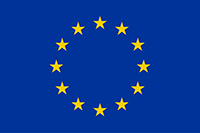I am looking for information as
Researcher

Industry

Patient

EJP RD
EJP RD: Expanding research infrastructure visibility to strengthen strategic partnerships
Topic: SC1-BHC-04-2018, Rare Disease European Joint Programme Cofund
Type of Action: CSA
Duration: 60 months
Start date: 1 Jan 2019
Grant agreement:825575
Web: http://www.ejprarediseases.org/
Total request Grant by Consortium: €55,582,724.77
Total request Grant by BBMRI-ERIC: €1,620,071.26 (including funds for linked third parties)
Linked Third Parties/BBMRI-ERIC Framework Agreement: TUM, CRS4, MUG, THL
Benefit/tasks for BBMRI-ERIC: BBMRI-ERIC will lead tasks on technical GDPR implementation (Task 10.3) and Quality oversight (Task 10.4), and it will contribute to federated searches architectures (Tasks 11.2 and 12.1), machine readable access (Task 12.1), integration of existing services into Orphanet catalog (Task 11.1), and brokering hosting services for FAIR data provisioning (Task 12.3).
Within Pillar 3, BBMRI-ERIC will contribute with its expertise in ethical, legal and societal matters related to rare diseases. In particular, it will share its experience in operating the custom based ELSI Helpdesk and self-service Knowledge Base. Additionally, BBMRI-ERIC commits to host a 3-day training workshop in Graz ensuring awareness raising and appropriate knowledge transfer (Task 14.4).






